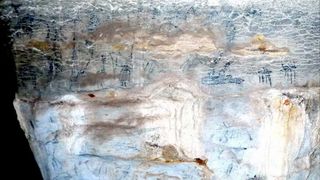Dr. David A. Burney is a paleoecologist and conservation biologist who has worked extensively in Africa as well as Hawaii, Madagascar, and other tropical islands. His research has focused on past environments, fire history, and natural disasters. He has over a half century of practical experience in conservation, starting out as a park ranger and including serving as a technical consultant for government projects and international programs.
Prior to moving to Kaua`i he was a professor at Fordham University in New York. He received an M.Sc. in conservation biology from the University of Nairobi (Kenya) and a Ph.D. in zoology with a minor in botany from Duke University. He is the author of over 100 scientific articles and monographs, many concerning pollen and other airborne particulates, sedimentary deposits, and the processes of extinction and environmental change.
In 2006 he was awarded a Guggenheim Fellowship to write a book on his work at Makauwahi Cave on Kaua'i, published by Yale Press (Back to the Future in the Caves of Kaua'i). His research has been featured on National Geographic Television, Discovery Channel, Hawaii Public Television, NOVA, and National Public Radio, and he holds the honorary title of National Geographic Explorer.
With his wife Lida Pigott Burney, he established the Makauwahi Cave Reserve on Kaua'i to protect, research, and restore Hawaii's richest fossil and archaeological site and reestablish thousands of native plants on the surrounding landscape. He currently holds the emeritus position of professor of conservation paleobiology at the National Tropical Botanical Garden, where he served as director of conservation from 2004 until 2012. His studies of tsunami deposits, fire history, and climate change have contributed to discussions and practical steps toward safer communities and healthier ecosystems.
